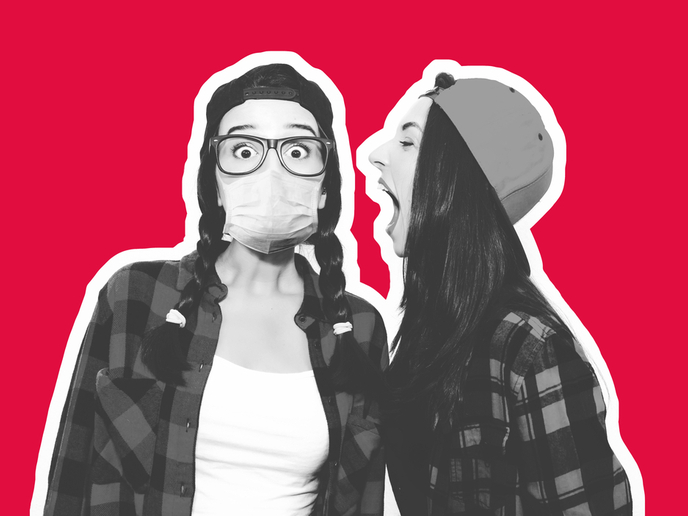Analysing the mental well-being of adolescents and young adults during COVID-19
The onset of puberty, associated with profound changes in drives, motivations, psychology and social life throughout adolescence, is a challenging time. The disruptive effects of COVID-19 that have impacted millions of lives render it crucial to explore the mental health needs of the young. Partially supported by the EU-funded PROSOCIAL project, an interdisciplinary research group has started examining how the adolescent brain is affected by the coronavirus lockdown. Quoted in a news item, Prof. Eveline Crone from PROSOCIAL project host Erasmus University Rotterdam states: “The goal of this research is to find out if this pandemic crisis has an impact not only on adolescents’ mental health, but also if it influences the way they contribute to the needs of others. The research is ongoing, but the first results show that during lockdown teenagers have been making a greater effort than before to understand others’ points of view – ‘social perspective taking,’ in the language of this research field.” According to the findings, teenagers took into consideration the needs of others during the lockdown. “At the same time, we noticed that their opportunities for prosocial actions – actually helping out others - decreased compared to prior to the pandemic, possibly indicating the effects of social distancing and being in lockdown,” Prof. Crone comments. Although “the virus feels like a war we need to battle, there is a very high level of trust. Having said that, there have also been some isolated but worrying incidents of anti-social behaviour in teens,” she adds. Prof. Crone hopes that young people will show resilience during this crisis, but also fears “that the crisis will increase social inequalities that will mostly affect the teenagers who already had fewer opportunities before the crisis.”
Emotional and practical burdens
As explained in the same news item, for the purposes of the study, the research team sent daily questionnaires to more than 600 adolescents in Rotterdam focusing on their moods, tensions and daily examples of helping others “to examine variations in these young people’s emotional states and to find out if they had any opportunities for positive social actions.” Based on the findings, Prof. Crone believes that young people will bear “the weight of this crisis in the years to come: they will start their careers in an economic crisis, and they will also have to deal with bigger problems such as climate change and global tensions.” She adds: “They need to have their own role in this brave new world and feel that they can contribute to the larger goals of society.” Prof. Crone emphasises that she’s keen to compare the groups covered in the research before and after the coronavirus crisis “and test the effects on brain development of children and adolescents that participate in our studies over several years.” She’s also participating in a global study on the subject. Τhe PROSOCIAL (The neural basis of prosocial development in adolescence) project runs until September 2022. It was set up to analyse the development of prosocial behaviour in adolescence “with a focus on behavior changes in helping, sharing and giving, and includes behavioral assessments as well as neuroimaging,” as noted in a periodic report on CORDIS. For more information, please see: PROSOCIAL project
Keywords
PROSOCIAL, COVID-19, coronavirus, teenager, young people, adolescent, mental health



